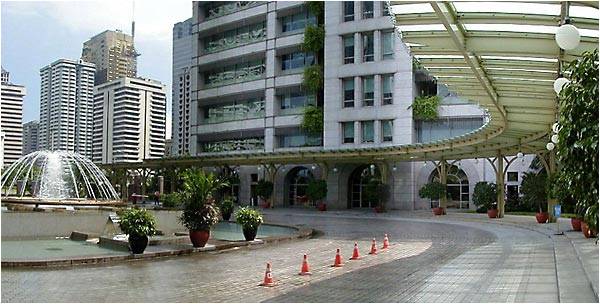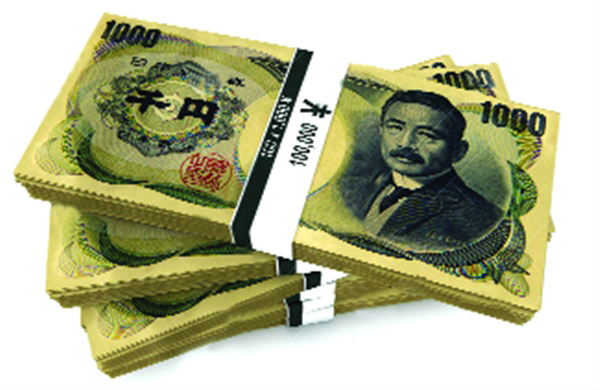
On May 21, 2015, Japanese Prime Minister Shinzo Abe announced a $110 billion investment plan for Asia through the Asian Development Bank (ADB). Financial commentators everywhere labeled this an obvious counter to China’s Asian Infrastructure Investment Bank (AIIB). Abe also made a veiled dig at China, saying a “cheap but shoddy approach” to lending could not innovate Asia. His announcement adds an economic dimension to the Sino-Japanese rivalry; one that has seen many wars, and involves territorial disputes in the East China Sea. The rhetorical decibels ramped-up mutually in 2014, when China began building outposts on the disputed Spratly Islands.
The real winners of this face-off will be Asia’s cash-strapped economies, since a local lending boom could majorly whittle down the $8 trillion development deficit. Pakistan, for example, has an infrastructure gap worth Rs.298 billion, and needs to allocate ten percent of the GDP until 2020 to cover this. Unfortunately, the country can barely manage the six percent it currently puts aside. On the warpath for over a decade, Pakistan needs regular monetary injections to keep the lights on.
China’s eagerness to pass the wealth plays by the rules of political science. With global recognition for its “sweatshop” economy, and America’s military might still intact, China seeks a bigger role, for now, through international finance. Dr. John Mearsheimer, father of “offensive realism,” believes that China wants to imitate America. Since the Iron Curtain fell in 1989, global politics have been shaped by the American “New World Order.” However, its twenty-first century economy has buckled under the costs of global wars and the 2007 financial crises. This provides China a channel to, as Mearsheimer believes, “Dominate Asia the way the United States dominates the Western Hemisphere.”
The Chinese ambition to “dominate Asia” worries Japan, partly because it knows the feeling. Before 1945, and China’s “Red Revolution,” Japan was the singular military power in East Asia, with a savage track record. In 1937, allied to Nazi Germany, Imperial Japan invaded mainland China and massacred without remorse. Professor J. Rummel, from the University of Hawaii, estimates that nearly six million Chinese died in the invasion. Postwar Japan, of course, ceded to MacArthur’s constitution, became pacifist, and a key U.S ally in the region. Contrastingly, when the Soviet Union sunk, Communist China became the boogeyman to American-sponsored “freedom” and “democracy.”
America’s concern is that China aims to buy regional loyalties, and eventually settle disputes over territory by force. If not for America’s recent “pivot” towards the Asia-Pacific, the barren islands of the East and South China Sea would be non-newsworthy. Especially since China has shown no interest in hijacking the major shipping lanes that pass through the surrounding waters. Despite this, America and Japan have bustled for a “Trans-Pacific Partnership” to counter, what U.S President Barack Obama calls, “China’s attempt to write the rules for the world’s fastest-growing region.” Curiously, many of its proposed members already overlap with the AIIB.

For its part, China agrees to remain above suspicion. Unlike America in the International Monetary Fund (IMF), China does not want a veto power despite its 30 percent stake in the AIIB’s $100 billion coffers. It also promises a speedier lending process unencumbered by red-tape. Through the AIIB and the “One Belt, One Road” project, China seeks to both raise its profile in the international economic system, and feed the domestic appetite for infrastructural mega-projects. By creating new import routes like the China-Pakistan Economic Corridor (CPEC), it also wants to prevent any Japanese-American naval blockades from stressing the supply lines.
In 1978, Chinese leader Deng Xiaoping propelled the country forwards through reforms aimed at bringing in foreign investment, and realigning its rural economy for an industrial revolution. The incumbent President Xi Jinping is considered to be the “most powerful leader since Deng Xiaoping,” according to analyst Deng Yuwen, and heir to his “China Dream.” Speaking at the Boao Forum for Asia in March, Jinping emphasized “The old mindset of zero-sum game should give way to a new approach of win-win and all-win cooperation.”
Even as Jinping believes” “the days of...the Cold War [are] long gone,” Japan and America still compute China through that calculus. When the AIIB kicked off in October 2014, both countries declined membership and then tried to discourage allies from joining the bank, openly expressing reservations on the quality of governance. In April, Obama warned that without transparency, the AIIB funds could be “misused,” and added “if it’s not run well, then it could be a negative thing.” Despite the warnings, the UK and Germany signed on as founding members, and so did earlier holdouts like Australia and South Korea. The final member tally now stands at 57 countries.
Michael Pettis, a renowned economic theorist, believes their decisions were based not on “implicitly anti-American” sentiments, but rather the need for cold, hard cash. In Europe, London and Frankfurt are competing for financial bragging rights, and deeper pockets will help both their causes. Also, with the First World on board, China will be pressured to uphold high fiscal standards, and stay away from a “cheaper rates, faster approval, and fewer questions” policy. The joiners also argue that since China would launch the AIIB anyway, it is better to be on the governing body than rail about it diplomatically.
For Pakistan, this is a win-win situation. With the impending competition to lend cash, it benefits by being part of both the ADB and AIIB. Furthermore, it can stay nonpartisan in the Sino-Japanese rivalry since there is nothing at stake. That said, a regional bailout is much needed. Indonesia’s Finance Minister, Bambang Brodjonegoro, recently stated “We need both...because the infrastructure financing need is very big, it cannot be fulfilled by only one institution.” Despite the rampant corruption in many client states, the sheer size of this “cash-wave” is sure to uplift poor Asia, if not secure it.
The real winners of this face-off will be Asia’s cash-strapped economies, since a local lending boom could majorly whittle down the $8 trillion development deficit. Pakistan, for example, has an infrastructure gap worth Rs.298 billion, and needs to allocate ten percent of the GDP until 2020 to cover this. Unfortunately, the country can barely manage the six percent it currently puts aside. On the warpath for over a decade, Pakistan needs regular monetary injections to keep the lights on.
China’s eagerness to pass the wealth plays by the rules of political science. With global recognition for its “sweatshop” economy, and America’s military might still intact, China seeks a bigger role, for now, through international finance. Dr. John Mearsheimer, father of “offensive realism,” believes that China wants to imitate America. Since the Iron Curtain fell in 1989, global politics have been shaped by the American “New World Order.” However, its twenty-first century economy has buckled under the costs of global wars and the 2007 financial crises. This provides China a channel to, as Mearsheimer believes, “Dominate Asia the way the United States dominates the Western Hemisphere.”
With the impending competition to lend cash, Pakistan benefits by being part of both the ADB and AIIB
The Chinese ambition to “dominate Asia” worries Japan, partly because it knows the feeling. Before 1945, and China’s “Red Revolution,” Japan was the singular military power in East Asia, with a savage track record. In 1937, allied to Nazi Germany, Imperial Japan invaded mainland China and massacred without remorse. Professor J. Rummel, from the University of Hawaii, estimates that nearly six million Chinese died in the invasion. Postwar Japan, of course, ceded to MacArthur’s constitution, became pacifist, and a key U.S ally in the region. Contrastingly, when the Soviet Union sunk, Communist China became the boogeyman to American-sponsored “freedom” and “democracy.”
America’s concern is that China aims to buy regional loyalties, and eventually settle disputes over territory by force. If not for America’s recent “pivot” towards the Asia-Pacific, the barren islands of the East and South China Sea would be non-newsworthy. Especially since China has shown no interest in hijacking the major shipping lanes that pass through the surrounding waters. Despite this, America and Japan have bustled for a “Trans-Pacific Partnership” to counter, what U.S President Barack Obama calls, “China’s attempt to write the rules for the world’s fastest-growing region.” Curiously, many of its proposed members already overlap with the AIIB.

For its part, China agrees to remain above suspicion. Unlike America in the International Monetary Fund (IMF), China does not want a veto power despite its 30 percent stake in the AIIB’s $100 billion coffers. It also promises a speedier lending process unencumbered by red-tape. Through the AIIB and the “One Belt, One Road” project, China seeks to both raise its profile in the international economic system, and feed the domestic appetite for infrastructural mega-projects. By creating new import routes like the China-Pakistan Economic Corridor (CPEC), it also wants to prevent any Japanese-American naval blockades from stressing the supply lines.
In 1978, Chinese leader Deng Xiaoping propelled the country forwards through reforms aimed at bringing in foreign investment, and realigning its rural economy for an industrial revolution. The incumbent President Xi Jinping is considered to be the “most powerful leader since Deng Xiaoping,” according to analyst Deng Yuwen, and heir to his “China Dream.” Speaking at the Boao Forum for Asia in March, Jinping emphasized “The old mindset of zero-sum game should give way to a new approach of win-win and all-win cooperation.”
Even as Jinping believes” “the days of...the Cold War [are] long gone,” Japan and America still compute China through that calculus. When the AIIB kicked off in October 2014, both countries declined membership and then tried to discourage allies from joining the bank, openly expressing reservations on the quality of governance. In April, Obama warned that without transparency, the AIIB funds could be “misused,” and added “if it’s not run well, then it could be a negative thing.” Despite the warnings, the UK and Germany signed on as founding members, and so did earlier holdouts like Australia and South Korea. The final member tally now stands at 57 countries.
Michael Pettis, a renowned economic theorist, believes their decisions were based not on “implicitly anti-American” sentiments, but rather the need for cold, hard cash. In Europe, London and Frankfurt are competing for financial bragging rights, and deeper pockets will help both their causes. Also, with the First World on board, China will be pressured to uphold high fiscal standards, and stay away from a “cheaper rates, faster approval, and fewer questions” policy. The joiners also argue that since China would launch the AIIB anyway, it is better to be on the governing body than rail about it diplomatically.
For Pakistan, this is a win-win situation. With the impending competition to lend cash, it benefits by being part of both the ADB and AIIB. Furthermore, it can stay nonpartisan in the Sino-Japanese rivalry since there is nothing at stake. That said, a regional bailout is much needed. Indonesia’s Finance Minister, Bambang Brodjonegoro, recently stated “We need both...because the infrastructure financing need is very big, it cannot be fulfilled by only one institution.” Despite the rampant corruption in many client states, the sheer size of this “cash-wave” is sure to uplift poor Asia, if not secure it.

